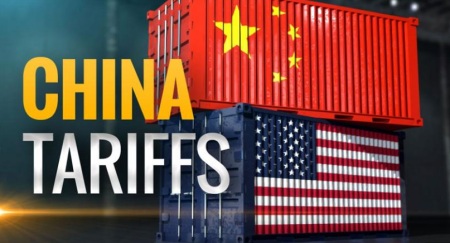【Lithium Batteries】 How Will New U.S. Tariffs Impact Lithium Batteries and Electric Vehicles?

【Lithium Batteries】 How Will New U.S. Tariffs Impact Lithium
Batteries and Electric Vehicles?
According to informed sources, U.S. President Biden is expected to announce new tariffs on China as early as May 14, targeting industries such as electric vehicles, batteries, and solar equipment. The sources indicate that total tariffs on Chinese electric vehicles will increase from 27.5% to 102.5%, with other target industries seeing tariff increases of one or two times. The Biden administration is expected to formally implement these actions before the presidential election in November.
Specific tariffs include:
Battery components (non-lithium): increasing to 25% in 2024
Electric vehicles: increasing to 100% in 2024
Masks: increasing to 25% in 2024
Lithium batteries for electric vehicles: increasing to 25% in 2024
Lithium batteries for non-electric vehicles: increasing to 25% in 2026
Medical gloves: increasing to 25% in 2026
Natural graphite: increasing to 25% in 2026
Other critical minerals: increasing to 25% in 2024
Permanent magnets: increasing to 25% in 2026
Semiconductors: increasing to 50% in 2025
Port cranes: increasing to 25% in 2024
Solar cells (whether or not assembled into modules): increasing to 50% in 2024
Steel and aluminum products: increasing to 25% in 2024
Syringes and needles: increasing to 50% in 2024
What will be the impact of the new U.S. tariffs on
Chinese lithium batteries and electric vehicles?
How significant will the impact be on Chinese lithium batteries? Currently, it appears that the "tariff curtain" on electric vehicles might fall soon, but for lithium batteries and related components, this curtain might be delayed due to practical considerations. The U.S. does not currently have the capability to decouple from China in the lithium battery sector.
Currently, 55% of the U.S.'s electric vehicle lithium batteries come from China. Including the import of anode and cathode materials, electrolytes, separators, and battery-grade lithium carbonate, the U.S.'s reliance on the Chinese lithium supply chain is unlikely to change in the short term. Specifications Reference for Graphitized Petroleum Coke for Lithium Battery Anode Materials.

Although the U.S. still leads in basic theory and technological reserves, it lacks competitive advantages in technical engineering personnel, industrial equipment, supply chain support, low-cost high-quality industrial workers, and market scale. Especially in the upstream of the lithium battery industry, particularly in raw materials and intermediates, China's market share is as high as 80%, with 95% of technical patents. This represents an absolute industrial dominance.
We have already seen the Biden administration seeking compromise in the lithium battery sector despite its "tough" stance. According to the Inflation Reduction Act (IRA), starting in 2024, new energy vehicles using Chinese-made or assembled battery components will not be eligible for the U.S. government's maximum $7,500 subsidy per vehicle. From 2025, this restriction will extend to key minerals like lithium carbonate produced in China.
However, on May 3, the U.S. Treasury announced more "flexibility," allowing electric vehicle manufacturers to use Chinese graphite in batteries while still qualifying for tax credits. This indicates a retreat from the previous stance.
At a press conference on May 14, Chinese Foreign Ministry Spokesperson Wang Wenbin stated that China firmly opposes the unilateral tariff increases that violate WTO rules and will take all necessary measures to defend its legitimate rights.
Does China export electric vehicles to the U.S.?
In fact, very few. According to data from the China Passenger Car Association, Geely was the only Chinese car company exporting vehicles to the U.S. in Q1 of this year, with 2,217 units.
Geely sells electric vehicles in the U.S. through its Polestar brand, most of which are currently produced in China. Polestar CEO Thomas Ingenlath has said that production will begin in South Carolina in 2024 to supply the U.S. and European markets. He recently reiterated efforts to increase production outside of China, aiming for 40% sales in Europe, 30% in the U.S., and 30% in the Asia-Pacific region.
Will the new tariffs threaten China's solar industry?
For China, the U.S. solar market is also small. Over 80% of global solar panel production is in China, where production costs are 60% lower than in the U.S. Last year, China exported solar cells worth $3.35 million to the U.S., less than 0.1% of its total exports. Finished solar panels exported to the U.S. were worth $13.15 million, only 0.03% of China's solar panel exports.
Industry observers note that the production of solar panels involves a complex supply chain. How the new tariffs will impact the sale of solar panel equipment depends on the specifics of U.S. trade policies. Biden has indicated that new tariffs will not include machinery for manufacturing solar panel components. Pay attention to the lithium battery industry, and welcome your consultation and discussion!
No related results found








0 Replies